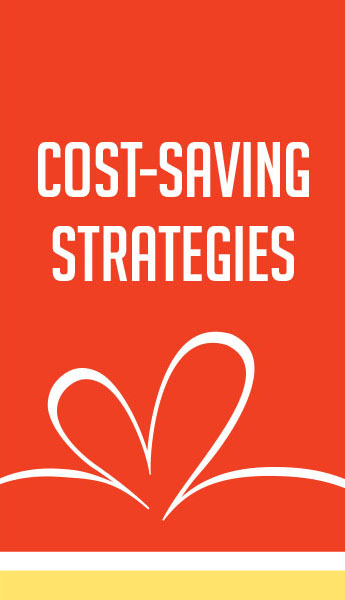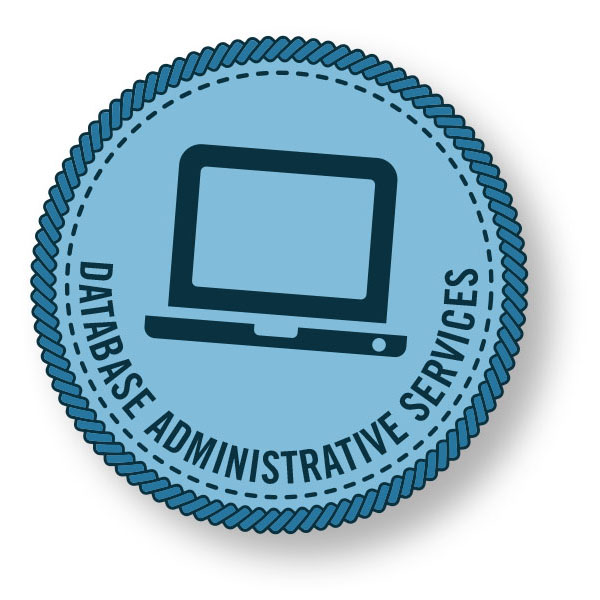 The Ohio State University, Columbus, made headlines within higher education and beyond when it inked a 50-year deal to lease its parking operations to a private operator. The university received an eye-popping, up-front payment of $483 million, which it immediately put into the endowment.
The Ohio State University, Columbus, made headlines within higher education and beyond when it inked a 50-year deal to lease its parking operations to a private operator. The university received an eye-popping, up-front payment of $483 million, which it immediately put into the endowment.
Nearly two years have passed since the lease took effect, and no one at Ohio State has second-guessed the decision. “Thinking strategically about the next 10 to 20 years, we determined parking wasn’t a core mission of the university because it doesn’t involve teaching, research, or community development or enhancement,” says Michael Papadakis, Ohio State’s vice president of financial services and treasurer. “We thought we’d be better served having someone else invest in upkeep and construction of new garages and parking lots, so we could allocate our capital elsewhere.”
In fact, the parking operator has already spent about $11 million to upgrade existing parking lots and garages and replace some machinery and equipment. Should the need for additional parking arise, the operator has the option of paying to construct and operate the facility as part of the lease; when the lease ends, however, all parking assets revert to the university.
The long-term lease, says Papadakis, “was an innovative way to fund student scholarships, faculty hiring, and research initiatives, typically funded through tuition—which we don’t want to continue raising dramatically every year.
“And, frankly,” he continues, “there’s no reason to think the university does parking better than an operator who focuses exclusively on parking.”
The Broader Perspective
Outsourcing, contracting out, or privatization—whatever term finds favor within your institution—has long been a strategy for cost control for colleges and universities. Using a private entity rather than in-house personnel to deliver a service can reduce the number of employees and their accompanying salaries and benefits. In addition, a private entity typically operates on a larger scale, leveraging its skills across many clients, to bring greater expertise and purchasing power to a campus.
“Right now, many universities are pres-sured to cut costs, particularly within the administrative functions,” says Rowan Miranda, who recently became treasurer and senior associate vice president of finance at the University of Chicago. Although Miranda thinks there has been a recent uptick in outsourcing within higher education, he cautions against contracting out various areas just to save money or because everyone else seems to be doing it.
“The key is to pursue only the choice opportunities that really make a difference for your university—and there will probably be just a few of those,” says Miranda. For example, the University of Michigan, where Miranda previously served as associate vice president of finance, considered following Ohio State into the realm of outsourced parking. The university’s nine-month evaluation process included site visits, profitability projections for in-house versus outsourced operations, and the assistance of an external consultant.
“Had we gone forward, it would have been an opportunity for the university to generate about $300 million in one-time revenue from a parking concession agreement,” Miranda recalls. “Ultimately, the advisers to our investment committee decided the extra revenue wasn’t worth losing control of real estate that may be needed for future campus facility plans.”
That’s the type of strategic discussion Papadakis hopes is behind every institutional inquiry he receives about outsourced parking. “Leasing parking, or any other area, can’t be a one-off decision,” he emphasizes. “Every school will have a different mix of what it wants—and doesn’t want—to be doing in 20 years, so outsourcing decisions need to start with the strategy of the university.”
Prairie View A&M University (PVAMU), for instance, consciously pursues outsourcing as a key component of its new business model. The university, part of the Texas A&M system, uses private entities for residential housing, central IT operations, bookstore services, supplemental security personnel, and food service. A year ago, as part of an A&M system initiative, PVAMU outsourced facilities maintenance operations for its 1,500-acre campus. The 10-year contract covers custodial, grounds maintenance, preventive maintenance, and repair of equipment for more than 100 academic buildings, some of which are a century old.
Upon signing the facilities maintenance contract, the university instantly realized 11 percent cost savings on its current expenditures, says Corey S. Bradford, senior vice president for business affairs at Prairie View A&M, Prairie View, Texas. Existing facilities maintenance personnel transitioned to the new contracted provider, and the university experienced a continuity of services.
“This outsourcing opportunity made sense from an efficiencies standpoint. These employees will have access to ongoing training opportunities that may not have been available otherwise. Additionally, they still have a presence here at PVAMU,” notes Bradford. “In today’s economy and with limited state resources, you have to think about efficiencies: Who can do it better than you can, and with fewer people, yet provide a better service?”
More for the Money
As Bradford points out, outsourcing isn’t just a cost-cutting mechanism. Often, turning to a third-party provider can enhance or expand an institution’s service capabilities.
Until 2011, for example, Emerson College in Boston lacked an internal audit function. When Maureen Murphy became vice president for administration and finance at the 4,500-student college, she immediately started lobbying to change the situation.
“It was a risk, not having the proper reviews of internal controls in place,” says Murphy. “At the same time, having a one-person show in internal audit is not effective or efficient—what if you need the special skills of an IT auditor or someone who does construction?”
Rather than outsourcing to the private sector, Emerson College joined six other members of the Boston Consortium—a nonprofit membership organization that supports activities for 15 higher education institutions in the area. The consortium employs internal auditors to perform this function for members that participate in the venture. With this arrangement, Emerson essentially shares the internal auditing group’s five employees with nearby colleges that either can’t afford a full-time internal auditor or want easy access to a broader set of specialized skills.
Like Emerson, Northwest State Community College (NSCC), Archbold, Ohio, has at least one outsourcing partner that’s not a corporate entity. For the last two years, NSCC has used the University of Toledo, Toledo, Ohio, to host its database system and provide database administration services.
“We’re in a rural area and just couldn’t get enough trained personnel to handle IT on campus,” says Kathryn Soards, chief fiscal and administrative officer at NSCC, which is located 50 miles west of Toledo. The community college, which already used space at the University of Toledo for a workforce training program, shared its dilemma and soon found the solution.
“Our two institutions run the same system and already had a relationship, so collaboration made sense,” explains David Morlock, executive vice president of finance and administration, the University of Toledo, and chief executive officer of its medical center. “Also, as a four-year school, we have an interest in the Northwest State students who complete their two-year degree and want to go on for further education.”
NSCC’s IT contract with the University of Toledo proved so successful that the two institutions recently signed another contract—for HR services—when the community college’s HR director retired. Annually, the contract costs NSCC about the same as its previous in-house arrangement and provides an on-site HR director one day per week, in addition to daily access via phone or e-mail. Typically, that director, Linda Torbet, brings along one or two other University of Toledo employees, depending on the type of training or expertise the college requires that week.
 Soards observes, “Realistically, for the size of our institution, we could afford a generalist. The contract with the University of Toledo gives us the bench strength we needed in HR—access to people with a depth of knowledge in employment law, benefits, FMLA, labor relations, and other areas.”
Soards observes, “Realistically, for the size of our institution, we could afford a generalist. The contract with the University of Toledo gives us the bench strength we needed in HR—access to people with a depth of knowledge in employment law, benefits, FMLA, labor relations, and other areas.”
From the University of Toledo’s perspective, adds Morlock, the arrangement has provided staff “a new, interesting set of issues to work on and new people to work with, so it’s excellent career development.” In fact, building on its work with NSCC, the university now has contracts with several other community colleges to provide HR or IT services.
Myriad Motivations
A change in the status quo, such as the staff retirement NCSS experienced, often spurs institutions to take a fresh look at outsourcing possibilities. Although Atlantic Cape Community College, Mays Landing, New Jersey, had contracted out its day care operations since 1990, a request from an academic department reshaped the RFP it issued in 2013.
“The new contract provides not only day care for children of students, staff, and faculty but also a practicum experience for students in our early childhood education program,” says Therese Sampson Budd, Atlantic Cape’s dean of administration and business.
The practicum, required for the program to earn accreditation by a national association, proved pivotal in the RFP process. The college’s day care provider for the preceding 23 years couldn’t meet all the accreditation requirements; the new provider could, at no additional cost, and already had experience integrating students into its teaching teams. Another bonus: The new operator is a Head Start provider, so Atlantic Cape’s students now have access to additional services, interventions, and free meals.
“Day care is now a little cheaper for our students than with our other provider—and the new provider agreed to put $6,000 worth of capital investment into the space we provide,” adds Sampson Budd.
For the University of South Florida (USF), Tampa, a major capital project motivated the move to outsource its arena event management and operations. As Fell Stubbs, university treasurer, tells it, “We had a 30-year-old arena and convocation center that still had a sound structure but needed to be thoroughly renovated and modernized. It was a tired facility, no longer meeting the needs of the university and no longer competitive with newer venues in the community and state.”
The university reduced the facility to its concrete shell and foundations, then spent $35 million rebuilding it as a state-of-the-art facility, complete with a new seating bowl; a new, concessions-packed concourse; modified entries; a center-hung LED scoreboard; NCAA broadcast capabilities; new student and hospitality clubs; and 10 loge boxes. The renovations extended the 10,000-seat arena’s useful life by another 30 years.
“The university invested a substantial amount of capital in the project and wanted higher performance outcomes in return,” says Stubbs, explaining USF’s outsourcing decision. “We knew it could take years to develop a new reputation in the marketplace for the facility,” he continues, “so we’re pleased that, within its first 12 months of operation, the arena ranked in the top five in total revenue for college facilities of its size in the country.”
Stubbs credits the new operator’s global reach, national scale, and established relationships with talent booking firms for bringing major—and profitable—events to the campus since the arena reopened in 2012. The management contract gives priority scheduling to the men’s and women’s basketball games and various student events, which are priced lower than the market rate for the university’s use.
What’s Needed
The University of South Florida also outsources sponsorships and sports marketing, food service, bookstore, and concessions, and is considering a student housing project that would attract private capital. At Prairie View A&M, which already outsources its housing, Corey Bradford would like to partner with a private entity to build a new parking garage, grow its online programs, and share in the profits. Someday, he hopes to partner with a local hospital to provide 24/7 health care services for PVAMU students. Providing health care in the evenings and on weekends remains a critical, unmet need in the university’s rural community.
As the number of such contracts grows, says Rowan Miranda, so does the need for chief business officers to develop new skills.
 “In general, higher education isn’t known for managing complex contracts very well or for tracking and managing vendor performance,” Miranda notes. “As you rely more on third parties to deliver services, you’ll need a much more strategic skill set in procurement and legal areas, to negotiate and manage these arrangements, establish service levels, ensure quality, and have the ability to work through issues with contractors.” Ohio State, for example, devotes one full-time position to managing its parking contract and other campus transportation issues.
“In general, higher education isn’t known for managing complex contracts very well or for tracking and managing vendor performance,” Miranda notes. “As you rely more on third parties to deliver services, you’ll need a much more strategic skill set in procurement and legal areas, to negotiate and manage these arrangements, establish service levels, ensure quality, and have the ability to work through issues with contractors.” Ohio State, for example, devotes one full-time position to managing its parking contract and other campus transportation issues.
Whether your institution is contemplating an unconventional area to outsource, such as parking, or something more typical, here’s some advice to consider:
- Keep an open mind. Rather than adopting the attitude of “We know everything, and we know what’s best,” take a positive approach to evaluating outsourcing opportunities, says the University of Toledo’s Morlock. He adds, “An arrangement is more likely to work out if you have the attitude of, ‘We’re here to partner with you and make things better for everyone involved.’”
Miranda says, “Many institutions say they don’t want the campus churn related to outsourcing, but you can’t afford to sit idle. You have to identify the best arrangement, on balance, for your university.”
When the University of Michigan considered outsourcing its parking operations, for example, it thoroughly researched the potential headaches, risks, and labor turmoil as well as the payoffs before deciding to maintain an internal operation. “If nothing else, you might learn how to run your own operation better, based on what the private entities are doing,” observes Miranda. “That’s where the University of Michigan ended up—through our research, we found a few nuggets of wisdom that ought to save a couple of million dollars annually.”
- Expect pockets of resistance. Even today, the merest whisper of the word “outsource” can make some people on campus wince. At Ohio State, “There was a very small but vocal group on campus, mostly faculty, opposed to outsourcing parking,” reports Papadakis. “The issue wasn’t necessarily parking. Philosophically, they just didn’t believe a public university should be privatizing or outsourcing anything.”
The majority eventually came around when they realized they’d be paying similar rates for parking, with or without the lease. “It also helped that the money we received would be used for things they cared about,” adds Papadakis. Ohio State set up four endowment funds, to support faculty hiring and research, student scholarships, the campus arts district and staff development, and campus transportation and sustainability initiatives.
Therese Sampson Budd encountered pushback from a different quarter: When Atlantic Cape Community College awarded its day care contract to a new operator, the previous operator protested to the board. Sampson Budd was prepared with a detailed matrix that recapped the selection committee’s work.
“I always like to have something concrete that shows how the decision was made,” she says. “Everything we do as a public institution is a public record, so the matrix was in our board packet. Everyone could therefore see how well the new vendor had scored in all areas.”
- Find the best fit. The University of South Florida looks for outsourcing partners that have national business models, best-in-class performance, and objectives and values that mesh with those of the university. “For us, a poor fit would be the loss of critical aspects of control,” says Fell Stubbs. In outsourcing its arena management, for instance, USF retained governance, budget, and capital project approvals.
Both Ohio State and Prairie A&M have negotiated outsourcing contracts that require the service provider to hire, or at least interview, all university employees whose jobs would be affected by the change. Bradford, who also requires a contractor to obtain his consent before hiring the on-site director or manager for PVAMU, particularly looks for companies with which he can form positive relationships.
“If I see any sign that the company is trying to inflate prices or overcharge, we will have a very candid discussion,” Bradford notes. “A good partner is someone you can trust doing business with, from their top managers, through their regional directors, and on down.”
 Dive into the details. A lot can happen over the span of a 50-year or even 10-year contract, so build in the flexibility to accommodate future developments. According to its parking contract, for example, Ohio State can annually designate 20 global event days—such as commencement, move-in/move-out, and football games—for which the university fully controls the usage of the parking system. “We haven’t come close to hitting those 20 days yet, but we built in a buffer for the years to come,” says Papadakis.
Dive into the details. A lot can happen over the span of a 50-year or even 10-year contract, so build in the flexibility to accommodate future developments. According to its parking contract, for example, Ohio State can annually designate 20 global event days—such as commencement, move-in/move-out, and football games—for which the university fully controls the usage of the parking system. “We haven’t come close to hitting those 20 days yet, but we built in a buffer for the years to come,” says Papadakis.
In addition to spelling out the scope of work, adds Bradford, the contract should tackle gray areas—such as how to handle overtime or how quickly the contractor should fill staff vacancies. PVAMU’s facilities maintenance contract also sets performance metrics based on results of client satisfaction surveys and an annual assessment of service quality.
- Treat contract employees like staff. Let’s face it—no one complains about the outside provider when an issue arises with outsourced building maintenance, parking, food service, or whatever: They complain about your college or university. Whether on the internal payroll or working on contract, the employees on campus represent your institution.
“Our approach to any outsourcing arrangement is that the people are part of our community. We want them to look and feel like the rest of Emerson,” says Maureen Murphy.
Corey Bradford meets monthly with all his direct reports—including those employed by outside contractors —and maintains an open-door policy for anyone who works on the campus. “If you want loyalty from your outsourced employees, treat them like your staff,” he advises. “Invite them to meetings, include them in your holiday party, give them a pat on the back when they do a good job, and look out for them just as you would for any campus employee.”
PVAMU has earmarked some of the cash it has received from outsourcing contracts to construct a new football stadium and new retail center and to renovate its dining areas—all high-profile projects that will benefit the majority of its nearly 9,000 students. At Northwest State Community College, cost savings and efficiencies have helped hold tuition increases to only 4.4 percent over the last seven years.
“Strategic partnerships, such as outsourcing, enable us to stay efficient and provide a quality education at the lowest possible cost,” summarizes Northwest State’s Kathryn Soards. “In the end, it’s all for the good of the student.”
SANDRA R. SABO, Mendota Heights, Minnesota, covers higher education business issues for Business Officer.




